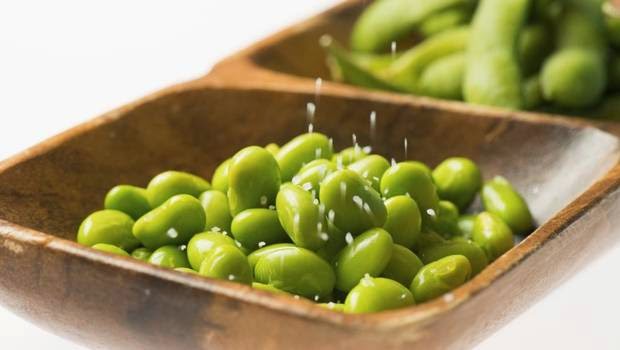Which foods and supplements can help manage my hot flashes?
As a registered dietitian in private practice, many women ask me the same question. As the most common menopause-related symptom, hot flashes cause them to seek out foods and supplements to offer relief.
For those of you who have yet to experience a hot flash – or have been fortunate enough to dodge them during the menopausal years – they are an intense feeling of heat in the face and chest accompanied by sweating and an increased heart rate. Hot flashes can last up to thirty minutes and can persist for weeks, months, even years.
Diet doesn’t cause hot flashes, but it certainly can set them off. Alcohol, caffeine, hot beverages and spicy foods are known triggers for many women. Many of my clients tell me that drinking one or two glasses of wine can lead to hot flashes.
When it comes to preventative foods, there is evidence that including soy foods in your diet can reduce hot flashes. Soybeans contain isoflavones, natural compounds that bind weakly to estrogen receptors in the body and, by doing so, could offer hot flash relief.
A 2012 review of randomized controlled trials found a consistent and positive effect for soy isoflavone supplements. Compared to placebo, consuming at least 54 milligrams each day for six weeks to a year reduced hot flash frequency and severity.
Isoflavone supplements with higher levels of genistein – one of the two main types of isoflavones in soybeans – were the most effective at easing hot flashes. Genistein, it turns out, is the main isoflavone in soy foods, suggesting that adding soy to your diet may work better than taking synthetic isoflavone supplements.
So what does 54 milligrams of soy isoflavones look like? A half cup of cooked soybeans, ¼ cup Edamame beans, 1 cup of firm tofu, 2 cups soy beverage or ¼ cup roasted soy nuts all deliver a good 54 milligrams worth.
Ground flaxseed may also reduce hot flashes. Preliminary evidence suggests that consuming four tablespoons of ground flaxseed each day can reduce mild hot flashes. Add ground flax to smoothies, yogurt, hot cereal and quick bread batters.
Black cohosh is the most studied supplement for hot flashes. And it does seem to offer modest relief for some women. The most consistent evidence is for a specific extract called Remifemin; studies using other formulations are less consistent.
Source: http://www.theglobeandmail.com/life/health-and-fitness/ask-a-health-expert/what-foods-should-i-eat-to-help-manage-my-hot-flashes/article17619393/?cmpid=rss1



Comments
Post a Comment